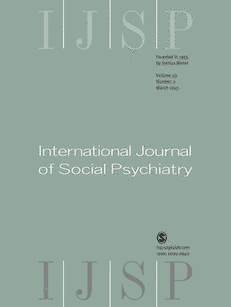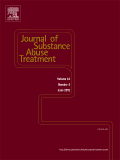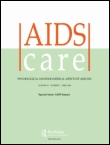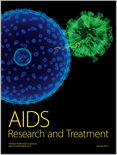
INTERNATIONAL JOURNAL OF SOCIAL PSYCHIATRY
Scope & Guideline
Bridging gaps in social psychiatry and mental health.
Introduction
Aims and Scopes
- Social Determinants of Mental Health:
Research in this area examines how factors such as socioeconomic status, cultural background, and community resources impact mental health outcomes. The journal emphasizes understanding these determinants to inform public health strategies and interventions. - Psychosocial Interventions:
The journal publishes studies on various psychosocial interventions aimed at improving mental health, including community-based programs, peer support, and educational initiatives, highlighting their effectiveness in diverse populations. - Cultural Competence in Mental Health Care:
A core focus is on the importance of cultural competence among mental health practitioners. The journal addresses how cultural context influences mental health perceptions and treatment approaches, thereby promoting better outcomes for diverse populations. - Impact of Crises on Mental Health:
The journal regularly features research on the psychological impact of social crises, including pandemics, natural disasters, and conflicts, providing insights into the mental health challenges faced by affected populations. - Stigma and Mental Health:
Exploration of stigma associated with mental health conditions is a recurring theme, with studies investigating its effects on help-seeking behaviors and treatment adherence, as well as strategies for reducing stigma. - Innovative Treatment Approaches:
The journal is open to novel therapeutic approaches, including telepsychiatry and digital interventions, reflecting the evolving landscape of mental health treatment in response to technological advancements.
Trending and Emerging
- Mental Health in Crisis Contexts:
Research exploring the mental health implications of crises, such as the COVID-19 pandemic, natural disasters, and socio-political turmoil, has surged. This trend underscores the need for immediate and context-sensitive mental health interventions. - Intersectionality in Mental Health:
An increasing emphasis on intersectionality—how overlapping social identities (such as race, gender, and socioeconomic status) impact mental health experiences and outcomes—is evident. This trend reflects a broader recognition of the complexity of mental health issues. - Digital Mental Health Solutions:
The rise of telehealth and digital interventions has become a prominent theme, with numerous studies investigating their effectiveness and accessibility, particularly in the wake of the COVID-19 pandemic. - Community-Based Mental Health Approaches:
There is a growing focus on community-based interventions that leverage local resources and support systems to enhance mental health care, promoting empowerment and sustainability in mental health practices. - Mental Health and Climate Change:
Emerging research linking mental health with climate change, including the psychological effects of environmental disasters and climate anxiety, indicates a new area of interest that reflects global concerns. - Youth and Mental Health:
Studies focusing on youth mental health, particularly in relation to social media use, bullying, and educational pressures, are increasingly prevalent, highlighting the unique challenges faced by younger populations.
Declining or Waning
- Traditional Psychiatric Models:
Research centered on conventional psychiatric models, which often emphasize biomedical approaches without considering social factors, has become less prominent. The journal's shift towards more holistic and integrated models reflects a broader trend in the field. - Generalized Studies on Mental Illness:
There has been a reduction in studies that broadly address mental illness without specific contextual focus. The journal increasingly favors research that investigates mental health within particular social, cultural, or economic frameworks. - Focus on Western-Centric Mental Health Issues:
The journal is moving away from research that predominantly addresses mental health issues within Western contexts. There is a growing emphasis on global perspectives, particularly from low- and middle-income countries, which have been historically underrepresented. - Longitudinal Studies Without Immediate Application:
There appears to be a decline in longitudinal studies that do not offer actionable insights or immediate applications for mental health practice. The journal favors studies that provide practical implications for interventions and policy.
Similar Journals

SALUD MENTAL
Fostering interdisciplinary dialogue to enhance mental well-being.SALUD MENTAL is a distinguished academic journal published by the Instituto Nacional de Psiquiatría Ramón de la Fuente Muñiz, Mexico, focusing on the ever-evolving fields of Clinical Psychology and Psychiatry and Mental Health. With an ISSN of 0185-3325 and a history of publication dating back to 1995, this journal serves as a pivotal platform for the dissemination of research, innovative practices, and advancements in mental health care. Despite its classification within Q3 quartiles in 2023 for both Clinical Psychology and Psychiatry and Mental Health, SALUD MENTAL continues to strive for excellence, fostering interdisciplinary dialogue and contributions that enrich the understanding of mental health phenomena. Researchers, professionals, and students will benefit from its insightful articles and studies, which address pressing issues in the field, making it an essential resource for those dedicated to improving psychological and psychiatric practices in Mexico and beyond.

BRITISH JOURNAL OF PSYCHIATRY
Leading the Dialogue in Psychiatry and Mental HealthBritish Journal of Psychiatry, published by Cambridge University Press, stands as a pivotal resource in the realm of mental health and psychiatry. With an impressive impact reflected in its Q1 classifications in both Medicine (miscellaneous) and Psychiatry and Mental Health, this esteemed journal ranks 23rd out of 567 in its field according to Scopus, achieving an exceptional 96th percentile. Since its inception in 1963, the journal has continued to push the boundaries of research and discourse, serving as a platform for groundbreaking studies that enhance our understanding of psychiatric conditions and promote effective therapeutic strategies. Though it does not operate with an open-access model, the British Journal of Psychiatry remains an essential publication for researchers, clinicians, and students alike, offering in-depth insights and innovative findings that are crucial for navigating the complexities of mental health.

BJPsych Advances
Elevating standards in mental healthcare through research.BJPsych Advances is a distinguished journal dedicated to the field of Psychiatry and Mental Health, published by Cambridge University Press. With an ISSN of 2056-4678 and an E-ISSN of 2056-4686, this journal serves as a crucial platform for disseminating high-quality research and advancements in psychiatric science. Holding a position in the Q3 quartile as of 2023, it ranks 330 out of 567 in the Scopus database, representing a significant contribution to the mental health community, with a 41st percentile status. The journal not only covers recent innovations and methodologies but also emphasizes practical applications in clinical settings, making it an essential resource for researchers, practitioners, and students alike. With a commitment to fostering a deeper understanding of psychiatric disorders and their implications, BJPsych Advances plays a vital role in enhancing the standards of mental healthcare across the globe, bridging the gap between academic research and clinical practice.

JOURNAL OF SUBSTANCE ABUSE TREATMENT
Pioneering Insights for a Substance-Free FutureJOURNAL OF SUBSTANCE ABUSE TREATMENT, published by Pergamon-Elsevier Science Ltd, is a leading peer-reviewed journal that spans a wide range of topics related to substance abuse and addiction treatments. With an impressive impact factor, this esteemed journal ranks in the Q1 quartile across multiple disciplines including Clinical Psychology, Medicine (miscellaneous), and Psychiatry and Mental Health, making it a vital resource for researchers and practitioners alike. Covering convergence years from 1984 to 2023, it publishes cutting-edge research that informs treatment methodologies and policy development in the field of substance abuse. With access options that adapt to both traditional and modern academic needs, the journal seeks to advance the understanding and effectiveness of substance abuse treatment through comprehensive studies and innovative approaches. Be part of a global dialogue that shapes the future of addiction treatment by engaging with the latest findings and expert analyses that help bridge the gap between research and clinical practice.

EUROPEAN ARCHIVES OF PSYCHIATRY AND CLINICAL NEUROSCIENCE
Unveiling the Interdisciplinary Nexus of Mind and BrainEuropean Archives of Psychiatry and Clinical Neuroscience is a prominent peer-reviewed journal published by Springer Heidelberg, focusing on the interdisciplinary aspects of psychiatry and clinical neuroscience. With an ISSN of 0940-1334 and an E-ISSN of 1433-8491, this journal provides a rigorous platform for innovative research spanning biological psychiatry, pharmacology, and various aspects of mental health. The journal boasts a distinguished impact factor that places it in the Q2 category for Biological Psychiatry and Q1 in both Medicine (miscellaneous) and Psychiatry and Mental Health as of 2023, reflecting its significant contribution to the field. Additionally, its Scopus rankings highlight its esteemed position among the top journals, particularly in Medicine and Neuroscience disciplines. Readers can access a wealth of valuable research articles, case studies, and reviews, crucial for advancing understanding and treatment within these vital fields. Initially converged in 1990, the journal continues to evolve and support scholarly dialogue until 2024 and beyond, making it an essential resource for researchers, clinicians, and students alike.

Journal of Psychiatric Practice
Elevating standards in mental health practice since 1997.Journal of Psychiatric Practice, published by Lippincott Williams & Wilkins, is a premier journal dedicated to advancing the field of psychiatry and mental health. With a focus on evidence-based clinical practice, the journal has been a respected resource since its inception, providing a platform for a wide range of articles, including original research, reviews, and case reports from 1997 to the present. As of 2023, it holds a Q3 ranking in Psychiatry and Mental Health, reflecting its influential role in the academic community. The Journal is aimed at researchers, mental health professionals, and students, promoting the dissemination of essential knowledge and innovative practices. Subscribers benefit from the latest findings and discussions in the field while contributing to the ongoing advancements in psychiatric care. Although not classified as open access, the journal ensures wide accessibility to its valuable content, further solidifying its commitment to the mental health discipline.

AIDS CARE-PSYCHOLOGICAL AND SOCIO-MEDICAL ASPECTS OF AIDS/HIV
Championing Research that Empowers and EducatesAIDS CARE - Psychological and Socio-Medical Aspects of AIDS/HIV, published by Routledge Journals, Taylor & Francis Ltd, serves as a vital interdisciplinary platform for researchers, clinicians, and policymakers exploring the complex psychological and socio-medical dimensions of HIV/AIDS. With an ISSN of 0954-0121 and an E-ISSN of 1360-0451, this esteemed journal has been disseminating significant research since 1989 and continues to uphold a commendable reputation in the field, achieving a Q2 ranking in esteemed categories such as Health (Social Science), Public Health, and Social Psychology as per 2023 metrics. Its commitment to enhancing understanding of HIV/AIDS through quantitative and qualitative research makes it essential for stakeholders engaged in health strategies and mental health interventions. While currently not offering open access, the journal provides access to a wealth of authoritative articles that contribute meaningfully to the ongoing discourse surrounding HIV/AIDS and its socio-psychological ramifications. Researchers and students aiming to deepen their knowledge and intervention strategies will find this journal an invaluable resource.

Accion Psicologica
Exploring New Dimensions in PsychologyAccion Psicologica is a prestigious open-access journal published by the UNIV NACL EDUCACION DISTANCIA-UNED, FAC PSICOLOGIA, dedicated to the field of psychology. Since its inception in 2002, this journal has provided a platform for innovative research and scholarly articles that contribute significantly to the advancement of psychological science. With an ISSN of 1578-908X and an E-ISSN of 2255-1271, it ensures wide accessibility and dissemination of research findings in a global context. Although specific metrics such as H-index and Scopus rankings are currently unavailable, the journal's commitment to rigorous peer-review and high academic standards has established it as a valuable resource for researchers, educators, and practitioners alike. Positioned in the vibrant academic landscape of Madrid, Spain, Accion Psicologica aims to inspire and inform the ongoing discourse in psychology, making it an essential reference for anyone engaged in the study of human behavior.

PSYCHIATRIC ANNALS
Exploring New Frontiers in Mental HealthPSYCHIATRIC ANNALS, published by SLACK INC, is a renowned journal dedicated to the dynamic field of psychiatry and mental health. With an ISSN of 0048-5713 and E-ISSN 1938-2456, this journal serves as a vital platform for the dissemination of innovative research and practices in psychiatry, seeking to enhance understanding and treatment of mental health disorders. Founded in 1974, it has survived numerous convergent years of publishing and continues to offer valuable insights for professionals and researchers alike, currently holding a Q4 category ranking in the Psychiatry and Mental Health field according to the 2023 category quartiles. Although it does not operate under an open access model, its contributions to medical literature are significant, as evidenced by its rankings in Scopus. PSYCHIATRIC ANNALS strives to foster collaboration and discussion among experts, thereby advancing mental health knowledge and practices, making it an essential resource for those committed to improving patient care and outcomes.

AIDS Research and Treatment
Driving discovery in AIDS treatment.AIDS Research and Treatment is a premier open access journal published by HINDAWI LTD, dedicated to advancing the understanding and treatment of HIV/AIDS and related conditions. Launched in 2010, the journal has established itself as a vital resource for researchers, healthcare professionals, and students in the fields of Dermatology, Immunology, Infectious Diseases, and Public Health. With a notable 2023 impact factor reflected in its Q2 and Q3 quartile rankings across key medical categories, the journal plays a critical role in disseminating high-quality research and fostering innovation in the prevention and treatment of AIDS. It provides a wide range of open access options, enabling easier dissemination and increased visibility of research findings globally. As the landscape of HIV/AIDS research continues to evolve, AIDS Research and Treatment remains at the forefront, ensuring crucial insights and developments are shared to enhance public health outcomes.